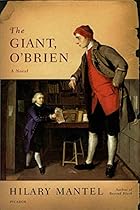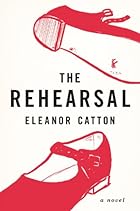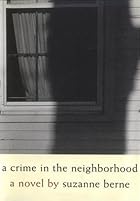Short listed for the Orange Prize's New Writer's Award (2009)
It is the early part of the twentieth century and Rachel is a black woman working as a housekeeper in a Chicago boarding house when she meets Isaac DuPree. Isaac is a Buffalo Soldier fighting Indians in the West and he dreams of land ownership – something that is now possible through the Homestead Act (a Federal law which gave an applicant ownership of free farmland called a “homestead” – typically 160 acres of undeveloped federal land west of the Mississippi River). Rachel is instantly attracted to Isaac, but Isaac is not looking for a wife…until he realizes that marrying Rachel means he will have 320 acres instead of just 160. They strike a bargain that Rachel will turn over her land to Isaac and he will marry her for one year. Fourteen years later, the couple is still together living on the unforgiving plains of the South Dakota Badlands with their five children.I wanted Isaac to say that I meant something to him, that he’d be proud to take me as his wife. Instead, I felt cheap. This wasn’t how I wanted it to be. I had sold myself for a hundred and sixty acres of land. But it didn’t have to stay that way. I’d work hard. I’d prove myself. Isaac wouldn’t be able to do without me. - from The Personal History of Rachel DuPree, page 57 -
The Personal History of Rachel DuPree is written in the first person narrative of Rachel, a woman who had dreams of her own wooden home but now finds herself barely surviving a drought, and desperate for the contact of other women. Fearful for her children and at odds with her husband, Rachel begins to hatch a plan to escape the Badlands and return to Chicago.
Ann Weisgarber’s novel is the story of one woman, but it takes a broader look at the struggle of blacks to break free of inequality and become landowners. Weisgarber also touches on the plight of Native Americans during the early part of the twentieth century…and about the rigid racial stereotypes which were typical at that time.
Through vivid descriptions of life in a barren and harsh environment, Rachel Dupree lives and breathes in the pages of this novel. Rachel is symbolic of the many women who ventured from civilization into the wilds of the west, helping their husbands to settle the land and facing drought, starvation, accidents and even the dangers of childbirth with courage.
The writing in this novel is unsentimental, Rachel’s voice often matter-of-fact, yet it is surprisingly moving. I found myself deeply engrossed in this very American story of a strong woman’s quest for a better life for herself and her children. Readers who love Pioneer history, will be drawn to Weisgarber’s novel which was short-listed for the Orange Prize’s New Writers Award in 2009.
Recommended.






 )
)













 )
)

